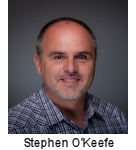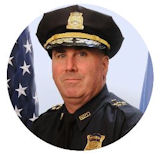|
|

|

 |
|
Canadian Privacy Laws now
favorable for the LP professional
3-part series publishing
Monday,
Tuesday and Wednesday
June 18, 2015 marked the introduction of major changes to the
Canadian Privacy Laws, which had previously made it extremely difficult for
LP professionals to share information about known criminals. Read the firsthand
account of the 15-year journey to change a law that was intended to protect
against crime, but in fact made it possible for the criminal to operate with
anonymity to a certain degree.
Part 3 -
Legislative Reform
On June 18, 2015 Bill S4 received Royal Assent in Canada. Essentially the
language that was used to describe required changes to the Privacy Act had been
accepted and was now law. The Bill was designed to address several issues
related to PIPEDA, the Canadian Privacy Act which has been the topic of great
frustration with Organized Retail Criminal Investigators. The Act had been in
force since 2000, and over the last 15 years there has been a lot of effort made
to change the act - to remove the restrictive clause which speaks to the need to
obtain consent from an individual whose personal information you have, before
you can share it.
So the journey began. In order to protect retailers from any possible exposure
with the Office of the Privacy Commissioner of Canada, the sharing stopped.
Retailers wanting to let another retailer know of the identity of an organized
crime member had to first call Police, which allow for compliance to the Act
under the exemption. The Police in turn had to notify the other retailer. This
of course placed a burden on an already tapped-out resource, and respectfully,
Police may have at times had more serious crimes to attend to. Retail crime took
a back seat.
There had been many attempts over the years to change the Act; to allow for any
organization conducting a lawful investigation into crime, to be able to
collaborate with other organizations. The sheer essence of the criminal
provision of "engaging in organized criminal activity" meant that the burden of
proof was on the investigator. To be able to collaborate and prove that a group
was stealing from multiple locations reinforced this argument, but collecting
the data was difficult.
In 2011 the Industry Association "Retail Council of Canada" arranged a meeting
with Retail, Law Enforcement and representatives from the Privacy Offices of
both Canada and Ontario. Chief Bill Blair of the largest Canadian City Toronto,
along with Stephen O'Keefe who was the Vice President of Loss Prevention
and Risk Management for Walmart, shared many stories to attempt to sensitize the
representatives of the government agencies to the nature of the issue, in that
criminals were being given a quasi form of anonymity as they hid behind the
restrictive nature of the Act. They heard, and they designed a fix!!! And thus
was born in September 2011 - Bill C 12. The problem was that the example that
was used in the original meeting dealt with a fraud issue, so the language of
the proposed amendments related to "financial crime", not theft or crime in
general.
Prior to receiving Royal Assent, the Federal Privacy Commissioner fulfilled her
10-year commitment. With a New Commissioner getting ready to take office, all
proposed amendments being proposed were taken off the table.
The Bill subsequently died.
There were a number of meetings and phone calls that took place from 2012 to
2015 which were instrumental in embedding the exemption language in the newly
created Senate Bill S4 which speaks to the broader topic of mandatory reporting
of breaches.
 Firstly,
Stephen O'Keefe entered into a consultancy agreement with Retail Council of
Canada with a mandate to address several legislative changes including the
problematic Privacy Act as well as a Criminal Code of Canada provision. Like
many associations, a committee of like-minded business professionals met
periodically to discuss specific areas of the business. The RCC Privacy
Committee was active during this period of time. However this committee was not
like most of the "retailer only" groups. A representative from the Federal
Privacy Office was asked to join the committee and participate. They were
exposed to firsthand accounts of the issues that affected retail. Shortly after,
another meeting was held, this time with the interim Commissioner present.
Something different took place during this meeting which was the key to the
design of Bill S4. Firstly,
Stephen O'Keefe entered into a consultancy agreement with Retail Council of
Canada with a mandate to address several legislative changes including the
problematic Privacy Act as well as a Criminal Code of Canada provision. Like
many associations, a committee of like-minded business professionals met
periodically to discuss specific areas of the business. The RCC Privacy
Committee was active during this period of time. However this committee was not
like most of the "retailer only" groups. A representative from the Federal
Privacy Office was asked to join the committee and participate. They were
exposed to firsthand accounts of the issues that affected retail. Shortly after,
another meeting was held, this time with the interim Commissioner present.
Something different took place during this meeting which was the key to the
design of Bill S4.
What seemed like a casual discussion before the formal meeting, Stephen O'Keefe
described the technology that retailers had in their stores from a video
broadcast standpoint. He also described how a retailer would be able to
instantly convey information about an Amber Alert to all stores in the chain,
and in many cases to the customers through the various systems that vendors used
to air videos related to their products which can be seen occasionally on the
point of sale systems. The representatives from the Privacy Office became very
interested and said it was a great idea. The information about an abduction
would be aired immediately across the country. In these cases time is critical
to ensure the safety of a child. They were not connecting the story to the
Privacy Act as it appeared to be simple small talk before the official meeting.
"Great idea, but your Act doesn't allow us to do it" replied Stephen. This was
the start of a 30-minute discussion into the Act whereby even those from the
Office owning the piece of legislation were shocked by the restrictive nature.
Two months later Bill S4 which was an Act to introduce mandatory reporting of
breaches, included language related to the exemption to obtain consent if the
request for consent would compromise the process related to investigating a
criminal act. PERFECT!
Under the new rules, retailers in Canada can now share information. There are
recommendations and guidelines for how the information should be shared, and
when the information should be destroyed if no longer used for the purpose of
conducting a criminal investigation, but for the most part the bottom line is
"Organized Criminals beware...there is no more anonymity in Canada if you are
committing a crime".
Stephen O'Keefe is an independent consultant and works with retailers and
vendors in the area of risk management and loss prevention based out of Toronto
Canada. His previous experience with Walmart exposed him to many different
countries and many different laws and regulations. His company Grist Mill
Solutions helps clients design internal programs to operate efficiently,
maximizing profitability while complying with regulations.
|
Keynote Session:
The Boston Bombing!
Leadership Lessons From the Hero Who Saved the Day |

Sep. 16th - The International Centre |
 As
the Superintendent-in-Chief of the Boston Police Department, Dan Linskey
was thrust into managing one of the largest law enforcement operations in
history. In this compelling talk on leadership and emergency response planning,
Chief Linskey will share how he transformed his intense emotional response into
the coolest, most calm he's ever been, the importance of specificity of
training, why it's important to maintain a team of "Evil Geniuses," why you
should never have a "not my job" mentality, and why too much help can be a bad
thing. This is a half hour lesson in leadership that every LP professional
should hear, regardless of the size and scope of the incident you will be called
to lead. As
the Superintendent-in-Chief of the Boston Police Department, Dan Linskey
was thrust into managing one of the largest law enforcement operations in
history. In this compelling talk on leadership and emergency response planning,
Chief Linskey will share how he transformed his intense emotional response into
the coolest, most calm he's ever been, the importance of specificity of
training, why it's important to maintain a team of "Evil Geniuses," why you
should never have a "not my job" mentality, and why too much help can be a bad
thing. This is a half hour lesson in leadership that every LP professional
should hear, regardless of the size and scope of the incident you will be called
to lead.
See full agenda here.
Register here.
|
LPNN Filming at the RCC LP Conference
Solution Providers - Want to help make Canadian History?
Click here for sponsorship opportunities.
|
 | |
|
|